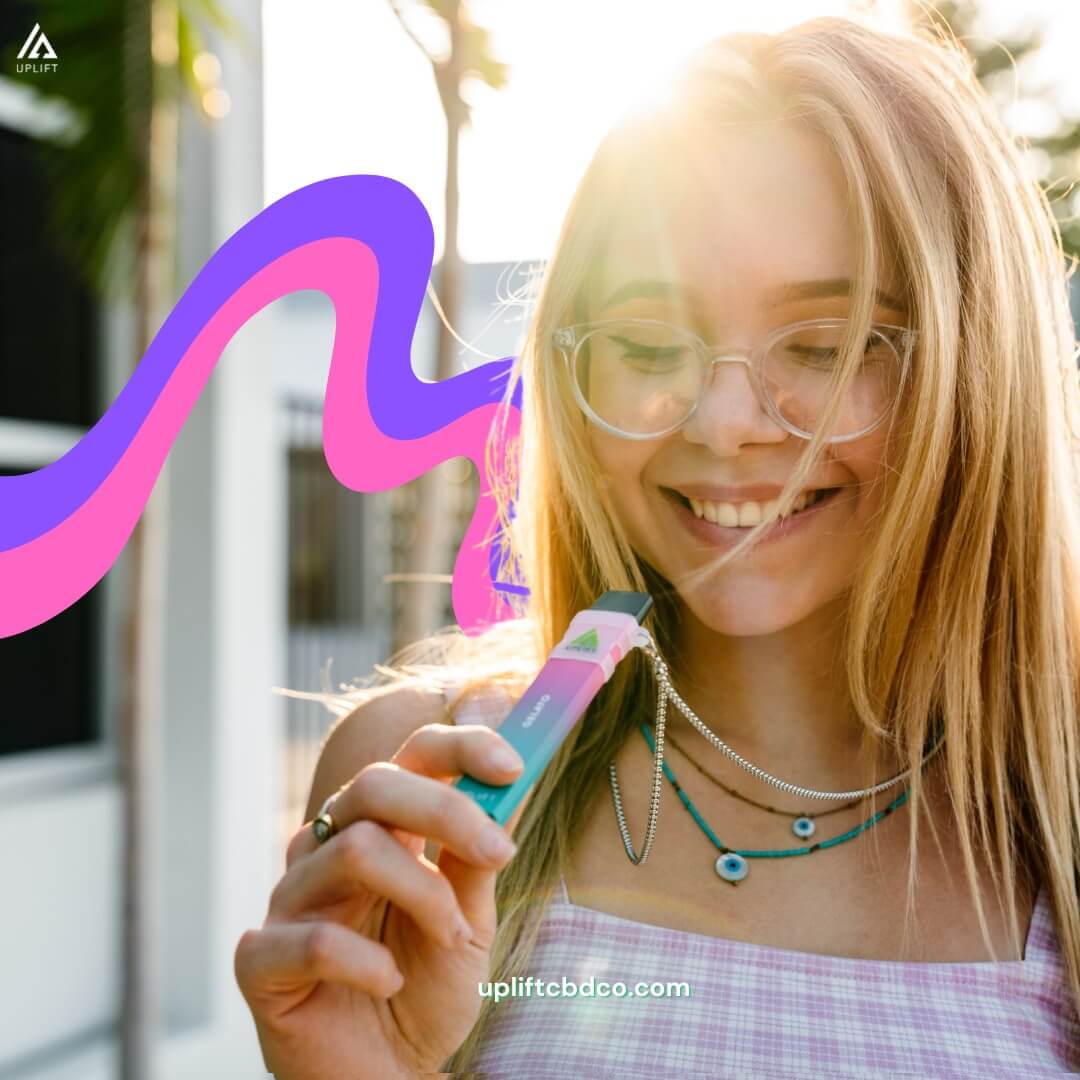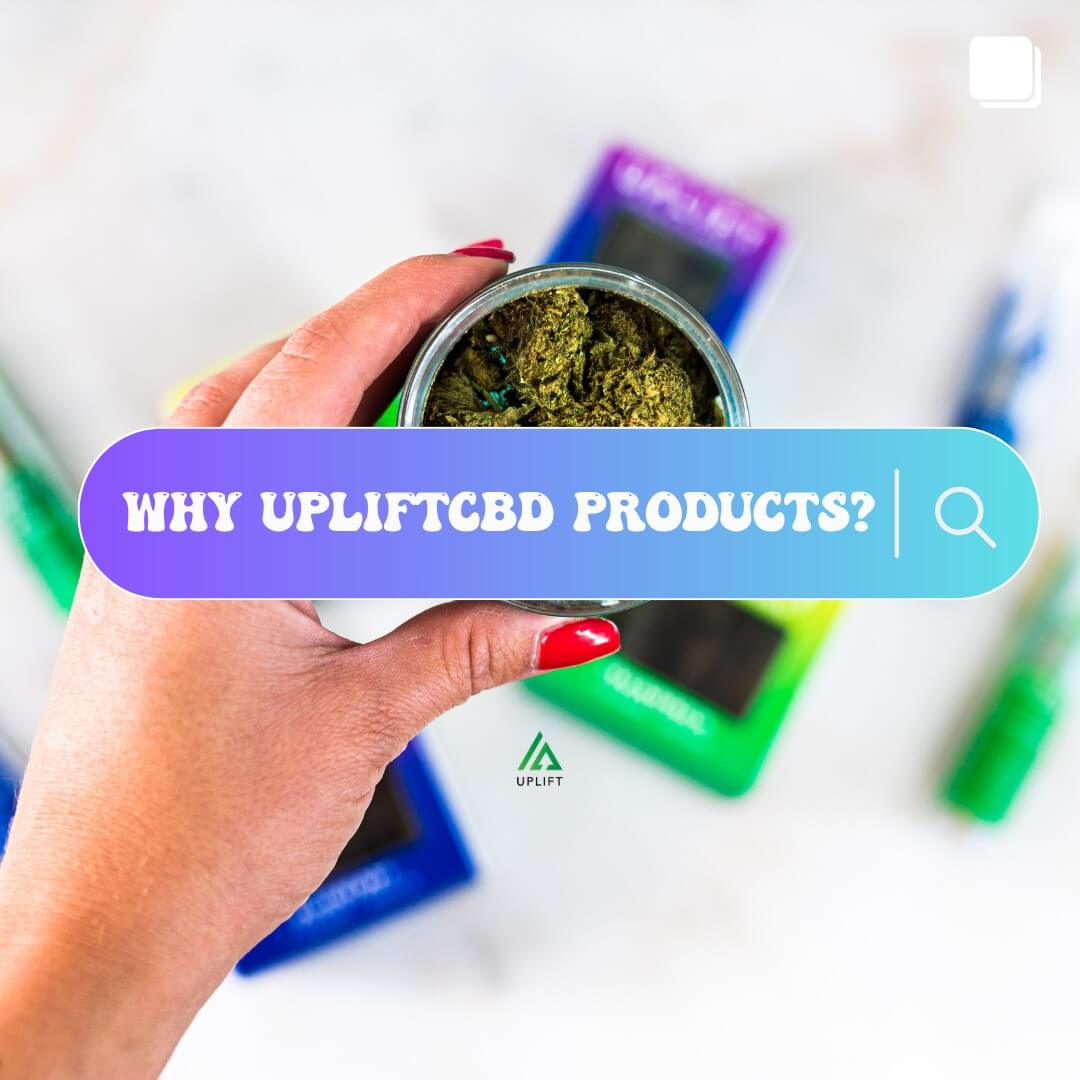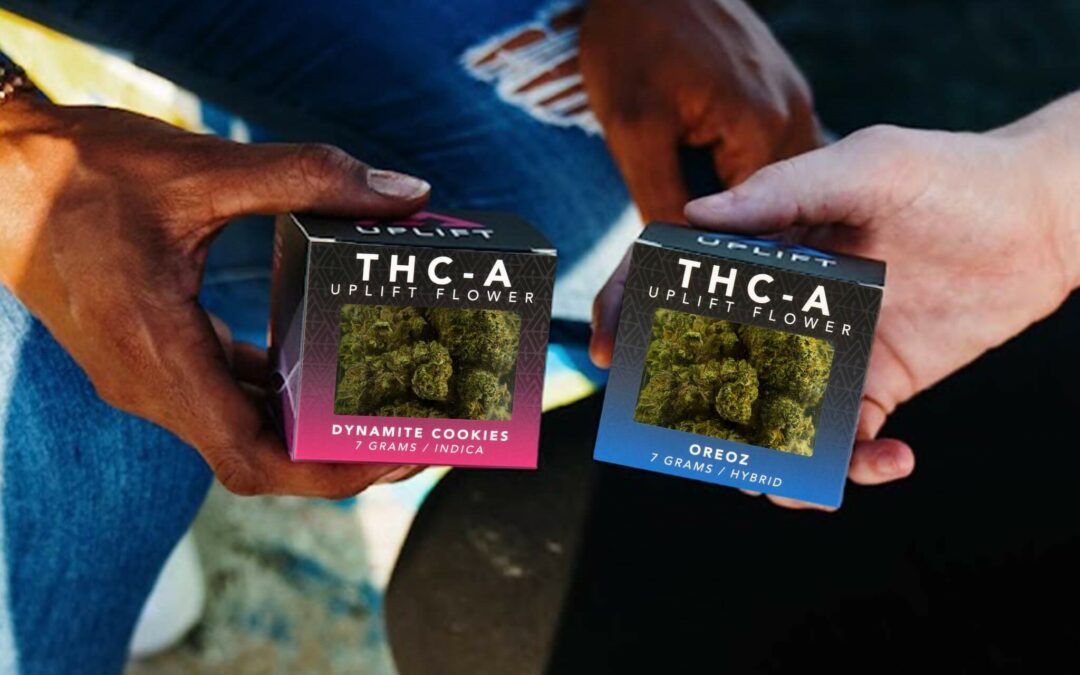What is THCA? THCA is the parent compound of THC, which is why it’s widely recognized and studied. But what sets THC and THCA apart? And why aren’t there more clear studies on THCA? Let’s explore these questions to understand the differences and the research challenges.
So, What Is THCA?
THCA (tetrahydrocannabinolic acid) is an integral part of fresh cannabis, serving as the building block for THC (tetrahydrocannabinol). One key distinction with THCA’s acidic form compared to its non-acidic counterpart: this gives rise to different properties and effects than that found with non-acidic ones.
Fresh cannabis naturally contains a significant amount of THCA. However, THCA is quite delicate and easily transforms into THC when exposed to heat or light. Studies have revealed that even temperatures as low as 4-18℃ (39-64℉) can activate this conversion, making it almost certain for THCA to become THC.
Many are turning to THCA supplements, available as capsules, oils, tinctures, and edibles, as an alternative form of therapy. Notably, unlike THC-related substances like cannabis or THC derivatives like cannabis extracts that produce an intoxicating “high,” THCA doesn’t cause psychoactivity; its non-psychoactivity stems from not engaging with CB1 receptors which are tightly associated with the psychoactive effects of THC.
Simply put, THCA won’t make you high like THC does. Its lack of psychoactivity enables users to enjoy all of the potential benefits of cannabis without experiencing its mind-altering effects. Studies suggest THCA may possess anti-inflammatory and neuroprotective properties as well as helping decrease nausea and vomiting.
GET YOURS HERE!

Is THCA Legal?
The legitimacy of THCA can be quite complex. In December 2018, Congress and President Trump passed and signed into law the 2018 Farm Bill, making hemp legal to cultivate and sell in the US, including cannabidiol (CBD) and tetrahydrocannabinol acids (THCA). Furthermore, hemp was taken off the list of controlled substances.
This legislation provided a much-needed boost for the hemp industry, opening up many new avenues for products made from hemp. Legalizing one of hemp’s key compounds – THCA – meant consumers could now access this compound without experiencing its mind-altering properties, creating an entirely new market of edibles, tinctures, and oils that contain this compound.
Note that while THCA itself isn’t classified as a controlled substance, local and federal laws prohibit possession of products with high concentrations of THCA such as marijuana or concentrates that contain it. Thus, although raw cannabis doesn’t cause intoxicating effects like other forms of marijuana could, law enforcement officers won’t consider that when encountering significant amounts.
What Are the Effects and Benefits of Thca?
Raw cannabis that has not been heated (decarboxylated) will not give you the “high” often associated with it. When consumed raw in any form – be it juiced, tinctured, or edibles made from it – the amount of THCA found in your system increases instead, providing some of the same health benefits associated with activating THC but without its psychoactive effects.
Contrary to popular belief, THCA does not directly connect with the CB receptors in our endocannabinoid system like THC does; rather it interacts with these receptors differently and less strongly.
Though more studies need to be completed before conclusively establishing that THCA provides pain relief like THC, preliminary data indicates it might be beneficial. Furthermore, early research shows potential neuroprotective properties for THCA that could delay or even prevent neurodegenerative conditions like Huntington’s disease.
THCA may also prove effective for treating intestinal conditions such as colitis and irritable bowel syndrome (IBS). Initial research indicates it could possibly even help manage seizure disorders; however, more study needs to be completed in this area before definitive conclusions can be reached on any potential benefits of using this compound.
How to Take THCA
Smoking cannabis turns THCA into regular THC. To consume THCA, you can eat a freshly made extract or raw cannabis. Some concentrates for dabbing claim to be high in THCA, but they can turn into THC if exposed to light and heat at room temperature.
It’s not recommended to eat a whole nug, but grinding fresh bud and incorporating it into edibles is a good way to get THCA without converting it. Mix ground buds with superfoods like kale and avocado in smoothies for health benefits. Some folks also juice fresh sugar and palm leaves after harvesting. Just ensure your grower doesn’t use chemical pesticides.
1. Inhalation
The most common way to use THCA is by smoking or vaporizing it. This method works fast, but smoking can harm your lungs, so it’s not a good choice for those with breathing issues.
Keep in mind that when you smoke THCA flower or concentrate, the heat makes it change into THC, which can have psychoactive effects.
2. Edibles
THCA is found in baked goods, candies, and tinctures. You can purchase THCA gummies or capsules, which contain the non-psychoactive form of THC. But, if you heat them, they will become THC.
To keep the THCA in its acidic form, consume the product without heating it up.
3. Topicals
You can also find THCA in creams, lotions, and balms. Many people prefer this method for treating skin issues or pain in specific areas because it doesn’t have any psychoactive effects.
4. Sublingual
You can also take THCA oils sublingually, which means placing them under your tongue. They get absorbed through the tissues there and enter your bloodstream, starting to work quickly and allowing for precise dosing.
In this form, THCA stays as THCA, so you don’t have to worry about it turning into THC accidentally.
How to Activate THCA
Activating THCA is simple; all it takes is “packing, lighting, and inhaling.” Many people do this daily when they smoke marijuana, use dabs, or vape.
To use decarboxylated cannabis in topical products, tinctures, and edibles, you can follow a straightforward process. The easiest way is to heat the cannabis flower in a regular oven at temperatures between 200-245 degrees Fahrenheit for about 30-40 minutes. Just be cautious not to go over 300 degrees or cook it for too long, as that can destroy the beneficial cannabinoids.

Conversion of THCA into THC
THCA can turn into THC through a process called decarboxylation, which happens when you heat or age the cannabis plant.
Cannabis naturally contains a lot of THCA but not much THC. When you heat, bake, or vape cannabis, the THCA loses a part called the carboxyl group and transforms into THC. This process activates the compound’s psychoactive effects, making it more potent and easier for your body to absorb.
Sometimes, decarboxylation can occur naturally as cannabis plants get older and are exposed to sunlight. That’s why some older cannabis products have higher THC levels than newly harvested plants.
If you don’t heat it enough, you’ll end up with lower THC levels and less effective products.
Can THCA Show Up in a Drug Test?
In a drug test, you can detect both THC and THCA. It’s likely that you’re absorbing THCA too because it’s hard to completely convert all the THCA in the weed or dabs you consume.
THCA can be a target in various drug tests, and it might show up as a positive result. So, if you know you’ll be tested, it’s best to avoid using or consuming products containing THCA, as drug screens can detect it.
Where Can I Find the Best THCA Products?
For the best THCA products, Uplift CBD is a top choice. They offer a wide range of high-quality options at affordable prices. Rest assured, their products undergo lab testing to ensure they’re potent and pure. Plus, ordering from them is quick and easy. Their customer service team is friendly and knowledgeable, ready to assist you. Uplift CBD is a trusted leader in THCA products.
THCA Products We Offer


